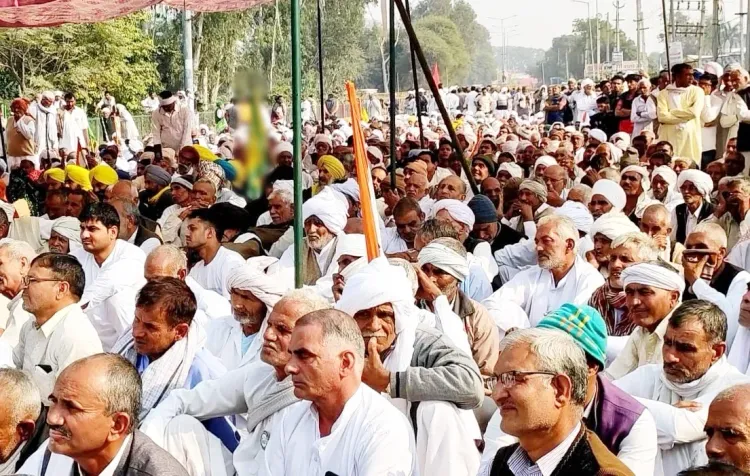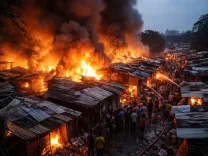What Are the Gujjar Leaders Demanding at the Mahapanchayat in Bharatpur?

Synopsis
Key Takeaways
- Mahapanchayat aims for 5% job reservation
- Community leaders mobilizing support
- 17th anniversary of 2008 movement
- Police are on alert due to increased activity
- Transparency demanded in government negotiations
Bharatpur, June 7 (NationPress) A faction of Gujjar leaders has organized a Mahapanchayat set for Sunday in Karwari village of Rajasthan's Bharatpur, aiming to advocate for their enduring demands, which include the thorough implementation of 5 percent reservation in government employment for their community.
To garner support, traditional yellow rice, symbolizing invitation, is being shared across 300 villages.
Led by Vijay Bainsla, president of the Gurjar Aarakshan Sangharsh Samiti, community leaders are actively visiting homes, encouraging attendance at the Mahapanchayat.
This gathering marks the 17th anniversary of the pivotal 2008 Gujjar movement.
In light of increased activity from Gujjar leaders, police and intelligence units have heightened their alertness, especially within Bharatpur and adjacent districts.
In a statement to the media, Bainsla declared, "We will not leave without achieving our rights. Should the government fail to respond, we will be compelled to initiate an agitation. It has been 17 years since the 2008 movement, and numerous key demands remain unresolved."
Bainsla emphasized that any forthcoming discussions with the government must occur publicly within the community's presence.
"No negotiations will take place behind closed doors. We have provided the government with our roadmap. If they wish to converse, it must be done transparently, with society watching," he stated.
One significant issue raised for protest is the ineffective execution of the Devnarayan Yojana, designed to facilitate educational and economic advancements for the Gujjar community.
"To us, the Devnarayan Yojana holds immense importance, yet its implementation is lacking. Our children are facing challenges in their education. Justice remains an unfulfilled promise from the 2008 agitation," Bainsla remarked.
With cautious optimism, Bainsla noted, "The Chief Minister has grown up among our people. I trust he will comprehend our struggles. However, the ultimate decision will rest with the community during the Mahapanchayat. The responsibility now lies with the Chief Minister."










